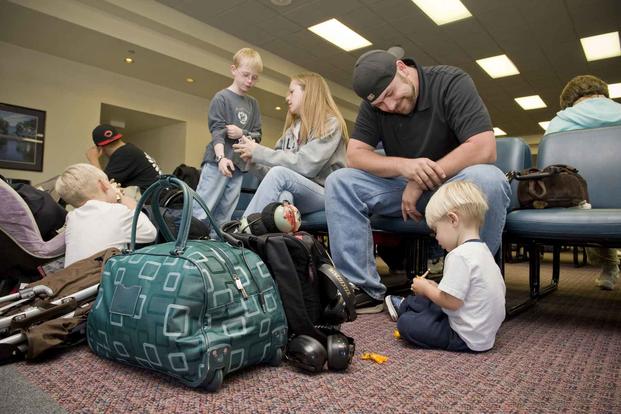When the Air Force trotted out a corny new slogan aimed at reminding all of us -- spouses as well as service members -- about the "fine line between letting your friends see what you're up to and providing an adversary critical information about your connection to the military and its mission" it seemed like a good time for a refresher on OPSEC, or operation security, and PERSEC, or personal security.
Some of this stuff is a no-brainer. Of course a deployed service member shouldn't be posting things like "headed out on patrol!" while deployed -- and of course his spouse shouldn't be posting that either.
The ideas of operational security (OPSEC) and personal security (PERSEC) are old news for most of us after so many years of war. OPSEC is basically habit by now. But what about PERSEC?
Social media makes it so, so easy to feel safe and secure. Maybe you've already locked down your account. You only post personal information in secure groups that require approval to join. Your Instagram account is public, but you don't tag your photos with your location.
You're good, right?
Maybe not.
In my social media wanderings I've been noticing a few increasingly common PERSEC mistakes.
3 Easy Military Spouse PERSEC Mistakes
1. It feels secure, so you think it is secure. Many military bases have members-only Facebook groups that require approval before a new member can join. The administrators might look at someone who wants to join a group to see if they appear to be a military spouse or appear to be local -- and then they approve them. But because there is an approval process, members feel like they can post personal information they may not put elsewhere -- information like what school their child is attending, the fact that they are going to be out of town for a week, their specific neighborhood location and more. It would be so, so easy for someone to piece together personal information on a person by just watching their postings in that kind of group.
2. You're just trying to let them know you care. Loose tweets hurt families. That slogan is not nearly as catchy, but it is true when it comes to hitting social media after you learn of the death of a service member. We've written about it before -- well meaning friends and family (and even, in one case, a Navy PAO) head to social media to express their condolences. The problem? The family hasn't been officially notified yet that there's a reason for condolences at all.
Rule of thumb: stop and think -- if there's even a shadow of a doubt that a family hasn't had the courtesy of being told by the military that their loved one has been injured or killed, keep it to yourself.
3. You don't stop and think about every social media choice you make -- including the ones made for you. I'm a triathlete. I use a Garmin watch and I sync it a social network where my friends can view my progress and I can view there's. Only problem is that it also uploads my precise route. And since I often start training runs from my home, that means I'm uploading my home address. You better believe I have that whole thing locked down and make sure the only people who can view that data are people I actually know in real life.
The key to being smart about social media isn't to simply not be on social media. I really do think that's a bridge too far. I also don't think changing your name on Facebook is necessary. But I do believe thinking through what you decide to send out onto the internet and when is important.
Keep Up with the Ins and Outs of Military Life
For the latest military news and tips on military family benefits and more, subscribe to Military.com and have the information you need delivered directly to your inbox.










